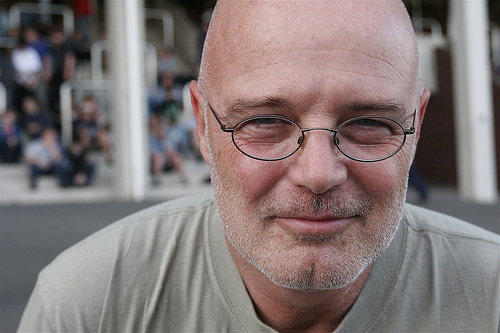From Progressing Spirit: The Religious Question — and the Human Question
$1.00
From Progressing Spirit: The Religious Question — and the Human Question
If Jesus was right when he said, in his inaugural address (as found in Luke 4), that the Spirit of God’s agenda is to help the oppressed, the weak, the broken-hearted, those with (in Thurman’s words) their backs against the wall, then no wonder many people are struggling with their religious identity.
Description
ProgressiveChristianity.org also publishes Progressing Spirit, a leading outlet for an intelligent, inclusive, and pioneering exploration of today’s theological, spiritual, and social advancements.
On a weekly basis we challenge some of the world’s top thinkers to offer their best insights about what’s happening on the leading edge. Our commitment to readers is to continually deliver fresh, cutting edge, interesting, and thought provoking commentaries that you will find inspiring, insightful, and sometimes even challenging.
Whether it’s about what is happening with churches, what new models of intentional spiritual community may look like, or how we take part in the quest for equality and inclusivity, these conversations and many more are deeply explored by best selling authors, social leaders, and cutting edge innovators. We look forward to having you in the conversation.
In addition to the featured Author’s Article, you will receive one of Bishop John Shelby Spong’s Articles from his Archive that ProgressiveChistianity.org manages.
Below are excerpts from the Featured Author and Bishop Spong’s Archive.
For only $1 click on Buy Now to receive full PDF of both Articles
-OR-
You can sign up and only pay $3/month to automatically have each weekly Newsletter in your mailbox on Thursdays by clicking here.
~~~~~~~~~~~~~~~~~~~~~~~~~~~~~~~~~
The Religious Question — and the Human Question
By Brian McLaren
Every day, it seems, I get another reminder about the struggles many of us are having with religious identity. Just yesterday, someone said, “I don’t identify as Christian anymore. It’s just not where I feel at home.” The day before that, a Jewish friend said, “While I still deeply appreciate my Jewish heritage, the truth is that I’m inter-spiritual. Every time I encounter a religious tradition in a deep way, I find something to love, and I can’t separate myself from it.” The day before that, I was in a group discussing the “spiritual but not religious” identifier. Several folks said that their problem wasn’t simply with any specific religion — Islam, Christianity, Judaism, or whatever. Their problem was with the whole idea of “organized religion” itself.
In The Great Spiritual Migration (Convergent, 2016), I explored the term organized religion. Perhaps the problem, I suggested, wasn’t that religions are organized. After all, I don’t think anyone is saying, “I would really love my religion if it were just a little worse organized!” I don’t think it’s “disorganized religion” that people are longing for. I think the problem is that religions are organized (well, or poorly) for the wrong goals or objectives, and they are not well enough organized for the goals and objectives we need most.
For example, major sectors of the Christian religion of which I am part are super well-organized to help people attend to the problem of original sin and how to achieve exemption from eternal conscious torment in hell. They are highly organized at protecting the interests of an all-male clergy (or almost all-male). They are highly organized to support the economic system from which they scavenge the crumbs of donations that fall under the table. They are highly organized to maintain their status as a socially respectable organization in society.
The American mystic and sage Howard Thurman diagnosed this problem with his usual understated brilliance when he said (in his 1949 masterpiece Jesus and the Disinherited), “Too often the price exacted by society for security and respectability is that the Christian movement in its formal expression must be on the side of the strong against the weak.”
If Jesus was right when he said, in his inaugural address (as found in Luke 4), that the Spirit of God’s agenda is to help the oppressed, the weak, the broken-hearted, those with (in Thurman’s words) their backs against the wall, then no wonder many people are struggling with their religious identity. Click on Buy Now for PDF of full Article
About the Author

~~~~~~~~~~~~~~~~~~~~~~~~~~~~~~~~~
Bishop John Shelby Spong Revisited
May 10, 2012
A Meditation on the Meaning of a Brief Life
They were a very happy young couple. Both the wife and the husband were successful professionally. They had worked hard to achieve this success, postponing much of what young adults think of as fun in order to pursue their goals. They were in their early thirties when they met, fell in love and decided to get married. Their marriage was an occasion of great joy for themselves and for both of their families. The wedding brought together customs old and new, uniting two distinct cultural histories into one life-giving and flowing stream. They settled into their new home and began to build their own traditions.
They wanted a family and after a year or so were delighted to learn that they were expecting a baby. Both families rejoiced in this news and it seemed that their happiness broke any boundaries that they had known before. Inspired by their joy they seemed to soar through the days. A month or so later to their amazement and heightened pleasure, they learned that they were expecting twins. With the realization that they had started their family a little bit later than usual, they were overjoyed. When all of their friends warned them about sleepless nights, double barreled diapers and no time for themselves, it fazed them not one bit so ecstatic was their anticipation.
All went well for about five months and then complications arose. The young mother began to dilate prematurely and threatened to go into labor. The lives of these babies were barely on the edge of viability outside the womb. Modern medicine that is so amazing sprang into action. The expectant mother was taken to the hospital and placed under twenty-four hour observation. If necessary, she would spend the rest of her pregnancy in the hospital. Every day she got through in that setting without further complications was a day that made the lives of these twins more hopeful. Click on Buy Now for PDF of full Article
About the Author
 Bishop John Shelby Spong, whose books have sold more than a million copies, was bishop of the Episcopal Diocese of Newark for 24 years before his retirement in 2001. His admirers acclaim him as a teaching bishop who makes contemporary theology accessible to the ordinary layperson — he’s considered the champion of an inclusive faith by many, both inside and outside the Christian church.
Bishop John Shelby Spong, whose books have sold more than a million copies, was bishop of the Episcopal Diocese of Newark for 24 years before his retirement in 2001. His admirers acclaim him as a teaching bishop who makes contemporary theology accessible to the ordinary layperson — he’s considered the champion of an inclusive faith by many, both inside and outside the Christian church.
A committed Christian who has spent a lifetime studying the Bible and whose life has been deeply shaped by it, Bishop Spong says he was not interested in Bible bashing. “I come to this interpretive task not as an enemy of Christianity,” he says. “I am not even a disillusioned former Christian, as some of my scholar-friends identify themselves. I am a believer who knows and loves the Bible deeply. But I also recognize that parts of it have been used to undergird prejudices and to mask violence.”
Only logged in customers who have purchased this product may leave a review.

Reviews
There are no reviews yet.